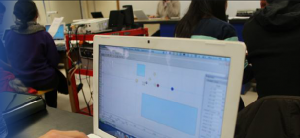 Lexington High is one of the highest achieving schools in the Boston area.
Lexington High is one of the highest achieving schools in the Boston area.
It also has a significant Asian American student population where 1 out of 3 students are Asian. Many of them are Chinese, Indian and Korean.
Parents of those students are becoming increasingly concerned their children are going through too much stress.
About 175 parents attended a recent teen stress reduction workshop targeting Asian Americans, reports the Boston Globe.
In a society where Asian Americans parents are sometimes accused to adding to that stress, these parents see a need for balance.
LATEST STORIES
“The (Asian American) kids are feeling many of the same stresses of the other kids in Lexington, but they are less likely to talk about them,” said Marsha Lazar, former director of Lexington Youth and Family Services. “So they are more likely to suffer in silence.”
Many come into the counseling center seeking help, but never return.
The workshop was sponsored by the Asian Mental Health Initiative.
You can read more about what’s contributing to the problem in the Boston Globe.








RE: Asian American parents help their children reduce stress: Thanks for sharing this article. This story really hits home for me because I also attended (middle) school in the Boston area growing up. I can definitely relate to what one of the moms said in the article that there is this feeling of “indebtedness” and the sense that “you just don’t talk about them” described by another student. My parents are also part of a community “that cares deeply about education,” both hold a Bachelor’s or higher, and I am part of this so-called 1.5 generation Chinese immigrant community. The article explains that a “culture clash, expectations” is what maybe at the heart of the mental health issues of these “academic superstars”. However, I do not think the issues are that simple, or vague.
To add onto the discussion of “expectations,” my dad worked 10-12 hours workdays, 6 days a week, and my mom worked 2 jobs (3 if one includes taking care of me) to support the family. I went to school, but far from being like the academic superstar that the articles talks about, I was an “academic supertar”. I had a hard time focusing on school work, I was bullied (both verbally and physically, including excluded socially), and I bullied others. I felt like a nuisance: I seemingly caused trouble to my peers, frustrated my teachers, whom probably saw me as a basket case, and the last thing I wanted to do was add more grief for my mom and dad, whom I saw, and especially my mom, as the only two folks who looked out for me and loved me.
I wanted least of all to go seek counseling, where there was no doubt in my mind that my parents would be involved. Apart from pulling them away from their busy professional work-life, I felt like I was trying to get them to reach a perspective that lay a gulf away from their own, and one that I struggled to understand and find solutions to.
This leads to my main point that using a nebulous concept such as “culture clash” to explain why Asian students “in a community steeped in high expectations” are “experiencing too much stress,” and “are less likely than their peers to seek help” is inadequate. From my own experiences, issues relating to bullying, family support, and school environment seem like factors that are equally important, if not more so, to this so-called “culture clash”. More specifically, K-12 schools within the Greater Boston area can adapt a comprehensive anti-Asian bullying campaign, hire and promote great teachers and administrators, whom are culturally sensitive to the experiences of Asian students, and build a school curriculum that incorporates the histories of Asian America and how it ties in with issues affecting Asian America of today. Of course, I maybe over-generalizing here, but I believe that the overall goal of effective change within K-12 education including issues involving the mental health of Asian Americans is the strong push for accountability, transparency, and, no doubt, the money to make it happen.
Re: Asian American parents help their children reduce their stress: Oops! I meant “…can adapt a comprehensive anti anti-Asian bullying campaign”… not the other way around.